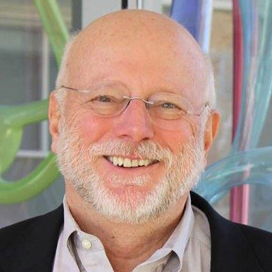Jack's Journal
Nonprofits should adopt these private-sector practices
Jack Horak
Director of Nonprofit Education & Consulting
TANGO

In my Oct. 14th column I discussed a new wave of thought called “stakeholder capitalism,” which injects some fundamentally new DNA into corporate America by requiring governing boards, for the first time, to consider social justice as they make their business decisions, even if doing so lessens shareholder profits.
I noted that the social-justice responsibilities imposed on businesses are of the same nature as those for which philanthropic organizations have always and exclusively operated.
This led to the following question: If the public good will be enhanced by requiring businesses to operate a little like nonprofits, might the public good also be enhanced (increased efficiency and results) by having nonprofits operate a little like a business?
I believe the answer is yes, and on a level so fundamental that it may make people’s heads spin.
Our standard philanthropic operating model is based on 19th-century thought, and is not well-suited for a 21st century in which nonprofits are operating enterprises as complicated as any business.
 I suggest that the term “charity” should be deleted from the lexicon because it is demeaning (who wants to be a “charity case”) of the people being served and devalues the nature of the work performed in their service. Similarly, the term “nonprofit” should be jettisoned because it has created a “poverty-is-virtue” mindset totally inconsistent with the fact that it takes a lot of money (profit) to confront social issues effectively.
I suggest that the term “charity” should be deleted from the lexicon because it is demeaning (who wants to be a “charity case”) of the people being served and devalues the nature of the work performed in their service. Similarly, the term “nonprofit” should be jettisoned because it has created a “poverty-is-virtue” mindset totally inconsistent with the fact that it takes a lot of money (profit) to confront social issues effectively.
Here are a few other areas in which capitalist thinking could improve the nonprofit sector’s efficiency and effectiveness.
Nonprofits are not subject to market-force corrections. Businesses fail if they cannot sell goods or services profitably; but ineffective nonprofits can linger for as long as they can attract contributions sufficient to keep the lights on, depriving the public of the self-corrective aspects of competitive markets.
The nonprofit sector needs to develop a system of commonly accepted metrics by which they can gauge the long-term “return” on their efforts so that funding sources can (as with investors) put their money where there will be better results. For example, what are the long-term benefits of youth intervention programs after the young people move on with their lives — are we providing a Band-Aid or a fix?
Funders will want to know.
An accepted nonprofit-sector custom is that organizations that should merge (for financial and performance reasons) will not do so if one organization’s CEO will lose his or her job.
Nonprofit mergers tend to happen only when one of the CEOs is ready to depart. This is a terrible custom that subordinates the long-term prospects of the organization to the personal interest of a CEO.
In a similar situation in the business world, companies typically “buy out” the departing CEO because the severance adds value to the enterprise by enabling the completion of a merger that will improve profitability. Cash expenditures of this type are still anathema in the nonprofit sector — but they shouldn’t be.
There are other ideas but let me close by making it clear that I am not being critical of the many dedicated people who manage nonprofit organizations diligently and well.
I am suggesting that their jobs would be easier, and their missions better fulfilled, if the standard nonprofit model, which they inherited and have lived with, was updated in fundamental ways that are “business-like” in nature.
Originally posted at The Hartford Business Journal.
More From TANGO
June 2024 – Founders Forum by Rollin Schuster
Of all the things we do everyday to support the nonprofit sector, nothing gives me more pleasure than to recognize our Rising Star Scholarship recipients.
Enhancing Cybersecurity for Non-Profits with Zero Trust: A Modern Approach
According to the 2023 Cybersecurity Threat Trends report, non-profits are increasingly targeted by cybercriminals due to their often-lax security measures and valuable data. Adopting a Zero Trust model can significantly enhance a non-profit’s cybersecurity maturity.
CONTACT
TANGO
Jack Horak
Director of Nonprofit Education
TANGO – The Alliance for Nonprofit Growth & Opportunity
135 South Road
Farmington, CT 06032
877-708-2646
tangoalliance.org
